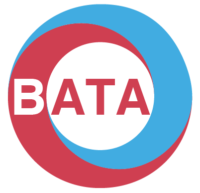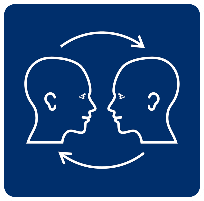- Where can I find information on government policy and legislation about communication needs?
Two key pieces of legislation affect disabled people in the UK. First, the UK has signed up to the UN Convention on the Rights of Disabled People. This document explicitly states that disabled people have the same rights as others, including the right to be free from discrimination, the right to education, employment, health and justice.
Second, the Equality Act 2010 provides the UK’s framework on discrimination protection. This law defines a disability as an impairment that causes “substantial” and “long-term” negative effects on a person’ ability to perform daily activities. The government’s guidance on the Act sets out the law in plain English.
- What types of services are available to help me find the right communication system?
There are many services that can help you to find the right AAC systems for your needs. Our web page on assessment has a list of services available throughout the UK, although it is not comprehensive.
Services in England, Wales and Scotland are currently under review. It is possible they will be brought under a new national framework over the coming months. The following information is accurate, to the best of our knowledge, at the time of publishing (September 2019).
Charities that aim to help people who may benefit from AAC include:
- The ACE Centre (Oxford and Oldham)
- Hannah’s (South West England)
- The Percy Hedley Foundation (Newcastle)
Organisations that work with new technologies to help pupils access schooling in educational settings include:
- CALL Scotland (Edinburgh, but works across Scotland)
- CENMAC (Greater London)
- CandLE (Cumbria)
Some services address disability more broadly and can provide assessments for physical disabilities as well as communication impairment. These include:
- AbilityNet (Warwick)
- Assistive Technology Consultancy Services (Winchester)
- Compass at the Royal Hospital for Neuro-disability (London)
- Sensations CTS in (Nottingham)
Local specialist AAC services are available through the NHS in Ayrshire and Arran, Barnsley, Belfast, Birmingham, Bristol, Cardiff, Central London, East Kent and Swale, Glasgow, Kent, London Great Ormond Street Hospital (children’s service), Newcastle, North Bristol (children’s service), Oxford, Sheffield, Southwark and Sussex (children’s service). Councils that provide advice on AAC include Aberdeen (children’s service), Edinburgh, Fife and Norfolk (children’s service).
Most of these services prefer to work with everyone involved with the AAC user – family members, therapists, educators and support workers.
- How do I get access to services?
All the services listed above have information on their websites about how to get referred to them. Some accept self-referrals, but generally you will need to be referred by a speech and language therapist, or other medical or education professional.
- Do these services charge a fee? Would I have to pay the fee?
Services offered through the NHS are free at the point of use. Some independent consultants and private companies charge a fee for their service. Charitable bodies may offer advice for free but charge for more bespoke services. You may be able to get funding from your school or local authority.
See also
- FAQs – AAC and Autism Spectrum Disorder (ASD)
- FAQs – AAC and cerebral palsy (CP)
- FAQs – AAC and developmental difficulties
- FAQs – AAC and employment
- FAQs – AAC and general paediatric care
- FAQs – AAC and hospitalisation
- FAQs – AAC and locked-in syndrome
- FAQs – AAC and Parkinson’s Disease (PD)
- FAQs – AAC and stroke and aphasia
- FAQs – AAC and training
- FAQs – AAC assessment and clinical decision-making
- FAQs – the law, policy and services






